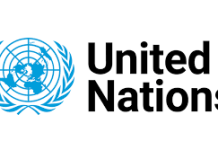Leadership of the Nigeria Labour Congress (NLC) has raised fresh concerns over the proposed national minimum wage, saying there was need for an amendment of the income tax laws to cushion the effect of devaluation that might hit the N30,000.
In a motion submitted by the National Union of Textile Garment and Tailoring Workers of Nigeria (NUTGTWN) at the plenary session of the 12th delegates’ conference of the NLC in Abuja, on Wednesday, the union noted that there was a “twin assault on the real income of Nigerian workers caused by unrestrained devaluation of naira and high rate of inflation.”
There were also worries that the process for the implementation of the new minimum wage was taking more than necessary time, urging the parent body, NLC, to discuss strategies and plans for effective implementation, particularly at the state level.
General Secretary, NUTGTWN, Issa Aremu, noted that it was important to put pressure on the Federal Inland Revenue Service (FIRS) to raise the tax bar in such a way that N30,000 minimum wage would fall below taxable income.
He also called for tax holidays for some categories of Nigerian workers.
He said: “Now that we have raised the minimum wage to N30,000, we must impress it on the FIRS to raise tax bar so that the new minimum wage will be protected.
“If you tax minimum wage of N30,000, we may as well go back to N25,000 or N27,000 by default. Deputy Speaker of the House of Representatives, Ike Ekweremadu, raised the point and I think Labour must push the agenda to protect the new minimum wage.
“The N30,000 is actually a compromised amount from N56,000 earlier proposed, so it must be protected. If the Federal Government can give 10-year tax holiday to companies, why not give the same to workers? Given the collapse of income, today, Nigerian workers deserve tax holidays.
“We are not asking for this because we consider our job as charitable, what workers have in their pocket is what will turn the economy around. That is what we will use to purchase goods in the market and pay rent. For economic recovery, it is good for workers to have sustainable purchasing power or disposable income that is off the tax hook.”
While corroborating Aremu’s position, General Secretary of NLC, Peter Ozo-Eson, said that the income tax law needed to be amended to protect workers’ purchasing power.
Ozo-Eson said: “Given that the N30,000 we agreed as a compromised minimum wage is so low, ideally, it should not be taxed but I believe that the correct way to do it is to amend the income tax law in order to raise the exemption bar if the N30,000 will fall within.
“The law should be amended to ensure that the minimum wage level is below the taxable income. Under the present law, if you earn N18,000 a month, your tax is zero. There is a tax table but with N30,000, under the existing exemption guideline, there will be some little tax because it will be slightly above the exemption tax. What needs to be done is to have an adjustment to the schedule so that the exemption is placed above the minimum wage.”












